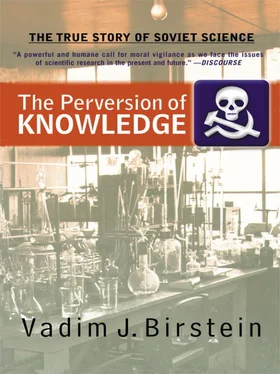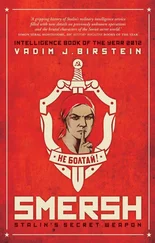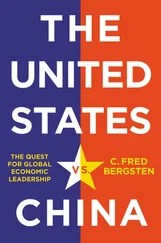In December 1977, Primakov was appointed director of the IVAN. 219Under his guidance, the institute became more involved in political than in academic studies. Primakov was especially interested in the study of Islam and the Middle East. In 1978 in Beirut, he published in Arabic the propaganda book USA Politics in the Middle East .
In 1979, Primakov was elected academician. It was widely known that he became an academician not as a scientist but because of his position as director of an academy institute. 220Academician Inozemtsev, who had many contacts within the Central Committee, as well as within the academy, personally asked academicians—representatives of the natural sciences—to vote for his protégé. Although he was not an economist, Primakov joined the Economic Division of the academy: there was no separate division on international affairs. Inozemtsev died in 1982, and Primakov was appointed director of the IMEMO in 1986, now with the support of Aleksandr Yakovlev, the new head of the Propaganda Division of the Central Committee. 221
In 1986, Primakov became a nonvoting (alternate) member of the Communist Party’s Central Committee, and in 1989, he was named nonvoting member of the Politburo. At the same time, in 1988–1989, Primakov was academic secretary of the Academy Presidium. In 1995–1997, when Primakov headed the SVR, an official three-volume historical book published by the SVR, Essays on the History of the Russian Foreign Intelligence, 222was provided with his name as an honorary “editor in chief,” although his role in writing this book “can scarcely have been much more than nominal.” In fact, according to Primakov’s biographer Leonid Mlechin, this book was edited by Lolly Zamoysky, an analyst of the KGB First Directorate and later SVR, known as a fanatic believer in a global Masonic-Zionist plot. 223It seems that Primakov principally changed the orientation and working style of Russian foreign intelligence. He moved the main goal of intelligence from targeting “the main enemy,” meaning the United States, to targeting international problems such as weapons of mass destruction, organized crime, drug traffic, and terrorism. 224
On January 9, 1996, Primakov was appointed Russian foreign minister. Primakov’s first SVR deputy, Vyacheslav Trubnikov, was appointed head of the SVR. Trubnikov’s professional career within the KGB began in the 1960s, after he graduated from Moscow State Institute of International Relations. 225Later, in 2000, Trubnikov was appointed first deputy foreign minister. In August 1998, Primakov became Russian prime minister for nine months. The respected science magazine Nature seemed very impressed by his academician status: “A former economist, Middle East expert, head of two research institutes, spymaster and diplomat, Primakov caps his impressive range of expertise with Russia’s highest scientific rank: that of academician.” 226
Primakov was never an economist. Besides, I would like to remind the “C. L.” who signed this article that beginning in 1929, the Soviet nomenklatura often used the academician rank as a perk for those willing to do its dirty work. Alexander Vucinich wrote about these people in his study of the Soviet Academy: “Such individuals made it impossible for the Academy to justify its claim to be the true forum of the best representatives of Soviet scholarship.” 227
In addition, Soviet dictator Josef Stalin was an honorary academician. The notorious Andrei Vyshinsky, the Soviet chief prosecutor who organized and directed the show trials in the 1930s (including Bukharin’s trial) and then became foreign minister, was also an academician. Moreover, beginning in 1949, the Soviet press officially named Stalin “the main coryphaeus in all branches of science.” 228Some scientists wrote in their papers: “I. V. Stalin teaches us,” 229and so forth. Obviously, all this does not mean that the poorly educated Stalin (after one year at a seminary, he quit to become head of a gang, which robbed banks to fund the Bolshevik Party) was in fact a scientist. I have already mentioned examples of Soviet academicians who were simply appointed on the order of the Central Committee of the Communist Party. In 1946, Stalin’s main official Marxist philosopher and head of the Directorate of Agitation and Propaganda (Agitprop) of the Central Committee, Georgii Aleksandrov (1908–1961), was “elected” and became an academician and his deputy, Mikhail Iovchuk, 230became corresponding member. 231The “input” of Academician Aleksandrov has nothing to do with science. His articles were simply a eulogy for the leading role of the Party opinion in Soviet science:
The followers of progressive opinions and trends in science, supported by the Communist Party and by public opinion, gain the leading posts in science, direct its development, help to overcome errors and defects in the activities of various scientists and the wrong opinions which arise in isolated individuals among the Soviet intelligentsia under the influence of bourgeois ideologies. 232
In 1932, Aleksandrov graduated from the Moscow Institute of History and Philosophy and soon began to work in the Comintern Executive Committee. 233In 1940, the thirty-two-year-old Aleksandrov was appointed head of Agitprop within the Central Committee after Andrei Zhdanov formally became the Central Committee secretary of ideology. 234In 1943, Aleksandrov received a Stalin Prize for his editorship of the third volume of Istoriya filosofii [History of Philosophy]. At the same time, he started an anti-Semitic campaign against Jewish artists and intellectuals. On July 15, 1943, he and his deputy, Tatiyana Zueva, sent a note to secretaries of the Central Committee, in which they claimed that “the leading staff [of the Bolshoi Theater] had been selected only because of their national origins, and with the prevalence of Jewish names.” 235In April 1944, the Politburo unexpectedly criticized Aleksandrov’s third volume of the History of Philosophy . Apparently, Aleksandrov’s chauvinism was too much even for Stalin at that time. From 1945, Aleksandrov played one of main roles in denouncing the Jewish Anti-Fascist Committee and its members. This was easy for Aleksandrov, especially because he was chief editor of Agitprop’s magazine Kul’tura i zhizn [Culture and Life].
In 1947, Stalin demoted Aleksandrov to director of the Academy Institute of Philosophy. However, Aleksandrov retained his contacts with Politburo members Malenkov and Suslov and his influence in official philosophy. 236In 1954, Aleksandrov was appointed minister of culture. After Aleksandrov’s supporter Georgii Malenkov was dismissed as chairman of the Council of Ministers, Aleksandrov was exiled to Minsk, the capital of Belorussia, where he worked at a local institute of philosophy.
In 1960, another of Aleksandrov’s deputies, Pyotr Fedoseev, also became an academician. Until 1947, he had been Aleksandrov’s deputy at Agitprop and later was appointed chief editor of Bolshevik magazine. In 1952, Fedoseev was dismissed and Bolshevik was renamed Kommunist . 237Despite the fact that a few popular brochures about the “harm” of religion published by Fedoseev were his only “contribution” to science, in the 1970s–1980s, he was vice president of the academy, headed the academy’s Publishing Council and the Scientific Council on the Studies of Problems of Peace and Disarmament. No wonder it was Fedoseev who awarded General Secretary of the Communist Party Konstantin Chernenko (who had no training in any field of science at all) with the highest Soviet Academy prize in 1985, a golden Karl Marx medal. 238It is at best naive to present the KGB/SVR head and a former Russian foreign and prime minister Primakov as a serious scientist. A talented administrator, he obtained his academician title while holding one of the highest positions in the Soviet hierarchy.
Читать дальше











